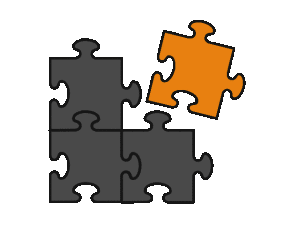Information found on a South African Consumer Credit Report?
Our team at i-Check Data Solutions have put this article together to explain in detail information found on a South Africa Credit report.With more than 18 million open credit accounts in South Africa and written off consumer debt topping R 100 billion in the last year alone, it is obvious why the creditworthiness of consumers is becoming increasingly important. The easiest way to start the credit checking process is by requesting a consumer credit report from a verification agency such as i-Check Data Solutions..
Most people are already aware that they have a credit score on a credit report. How this score is calculated is not so widely known. Your credit score is known as a FICO score. It was developed by Fair Isaac & Co, hence the name FICO. The score evaluates the creditworthiness of consumers. This calculation is based on several factors and range in score from 300 to 850. With 300 being the highest risk and 850 the lowest risk for bad debt. Your consumer credit report can be the deciding factor in your credit application.
Your FICO score is determined by a mathematical score which takes into account five factors on your consumer credit report: previous credit performance, current level of indebtedness, time credit has been in use, types of credit available and pursuit of new credit.
What can I expect to find on my Credit Report?
Having a look at what is contained in a consumer credit report provided by i-Check Data Solutions provides a good indication of the type of information obtained from the major credit reporting bureaus. The consumer credit report is roughly divided into six sections:
Personal Data
First of all, personal data such as current and previous addresses, I.D. number and employment history will be displayed. This data is coveted by identity thieves so check that it is correct and accurate. It is also required to completely shred all traces of this information when discarded.
Credit History
The credit history is a summary of the applicant’s credit history. The i-Check Data Solutions consumer credit report will include the number of open and closed accounts in the applicants name, whether the accounts are revolving or instalments, credit inquiries over the last 12 months as well as accounts that are past due or in good standing.
Account Details
Account details provide detailed account information. Included will be the account name, type, number, initialising date, balance and status of every account on the applicant’s record. Each account record includes payment history, date of last activity and the credit provider’s contact information. You will also be able to see which a list of account that is past-due or with negative credit history.
Should this information not be accurate the applicant can dispute the alleged errors on the credit report. The credit reporting agency then has to respond in a timely fashion and remove any negative information if unfounded in truth.
Inquiries
The consumer credit report also list the number of inquiries regarding the applicant’s creditworthiness. Two types of inquiries can be made. Hard inquiries are listed when the applicant authorized a company to request a consumer credit report. An excessive number of enquiries over a 12-month period can negatively impact you credit score. Soft inquiries are made without the consent of the applicant. Potential lenders don’t see these inquiries when they review your credit report, and these inquiries do not impact your credit report.
Collections and Judgements
The next section lists any accounts that have been turned over to credit collection agencies. Also any judgements made against the applicant in a court of law will be listed in the sixth sextion.
Dispute Issues
Last of all, information is supplied on how to challenge any damaging information on you consumer credit report. Other than errors and untruths, there is very little one can do to clear up a negative report except wait and stick to your payment agreements.
How does this data affect my FICO score?
Factors such as payment history, the length of time an individual has had credit and the individual’s employment history all play a role in determining your credit score.
Late payments, or no payments, length of credit history and the size of account balances in relation to your credit limits is major factors that impact a FICO score suggests i-Check Data Solutions.

